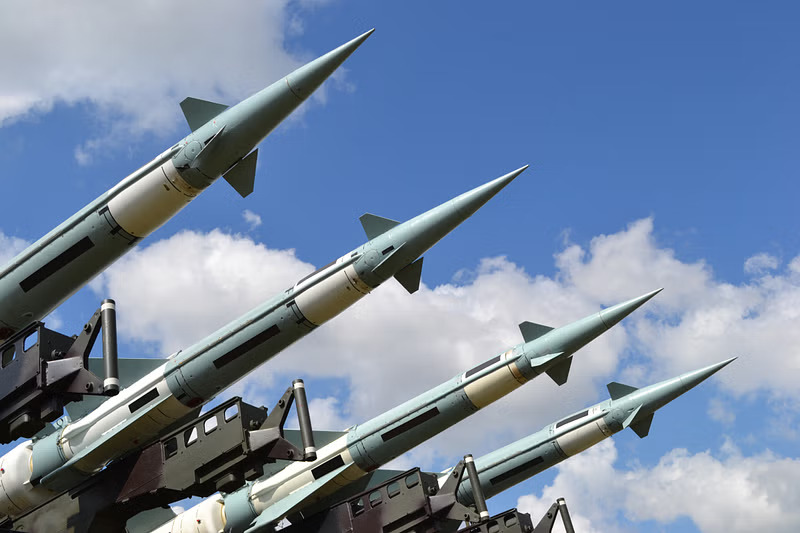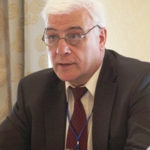Hot Topic
The American proposal to compartmentalize arms control in the non-existent bilateral relations is a bad idea. And that’s why.
Speaking to the members of the Arms Control Association on June 2, 2023, Assistant to the U.S. President for National Security Affairs Jake Sullivan stated that Washington was ready to discuss strategic stability with Russia without preconditions. He referred to the example of the Cold War, when the superpowers could isolate nuclear risks from the entire set of problems in the bilateral relations. And now, according to Sullivan, we should not wait for solutions to all; instead, discussions should focus on the arms control architecture beyond 2026.
Sentiments resembling the ones expressed by Mr. Sullivan are heard these days from European diplomats with whom we have been meeting at their requests. We see that in continental Europe they are again feeding on American illusions — this time that “for the Russians, strategic stability is more important than the European theater of operations”.
This is worse than delusion. This is a mistake.
Arms control does not exist in a vacuum. This is not an end in itself, but merely a means of stabilizing military-strategic parity. It is a tool for reducing the risk of armed conflict between nuclear powers.
For Russia, however, the main threat is not just, or primarily, the number of warheads on intercontinental ballistic missiles and the armament of heavy bombers. This is only part of a broader picture in which a hotbed of tension has been created right on our borders, threatening to escalate into a major war.
And, therefore, the issue is not arms control. Carthage, the former European security system that made it possible for the NATO tumor to spread, must be destroyed. And the only topic that makes sense to discuss is what will replace it. And this discussion should not be focused on individual bricks or separate pitfalls but on the whole.
References to the experience of the first Cold War do not apply. At that time, nuclear missile potentials developed uncontrollably, in the absence of any agreements or mutual understandings. During the Cuban Missile Crisis, there was neither the Partial Nuclear Test Ban Treaty, nor the NPT, nor the chain of Soviet-American agreements on notification of actions involving nuclear forces of 1987-1989.
Now, the rules of the game are fundamentally established. Even in its suspended state, New START sets the framework for the development of Russian and American deterrence forces. There is, at least for now, a moratorium on the deployment of ground-based medium- and shorter-range missiles. Nuclear danger reduction centers operate uninterruptedly. Thereby, the risk of nuclear conflict and arms race can be mitigated.
However, the main point is different. We suggest looking at the experience of the first Cold War with skepticism. That confrontation ended in the defeat of the Soviet Union. Attempts to build a new order on the remnants of the old, dividing key military security themes into baskets, culminated with NATO approaching Russian borders. And with the collapse of a series of agreements calibrated through the efforts of the negotiators: the ABM Treaty, the INF Treaty, the CFE Treaty.
If we accept compartmentalization now, we will get a sluggish discussion around the same topics. All this without the prospect of reaching any solutions because the current U.S. administration is incapable of fulfilling agreement. We observed this with previous administrations. And this means that, with a certain probability, not only now, but also in the future, any understandings reached with the U.S. administrations will be half-hearted and will not resolve a single major block of our concerns.
The alternative is a holistic approach proposed by Russia in 2020-2021. Security guarantees for Russia with a focus on curbing NATO’s harmful activities along the perimeter of Russian borders; arms control covering all elements of the strategic equation — these are the key factors affecting the state’s security.
We proceed from the fact that the highest priority in strategic risks reduction should remain the prevention of war between nuclear powers by avoiding of a direct armed conflict between them. We realize that these brackets include not only Russia and the United States, but also three other nuclear powers — Great Britain, France and China. Attempting to leave someone out of the brackets is a sleight of hand that borders on fraud. We are concerned about the total nuclear arsenal of NATO states, no matter how independent anyone calls their nuclear force. If you are not neutral with regard to the special military operation in Ukraine we are conducting, please sum up your nuclear forces; exclusion from the brackets is no longer accepted.
We believe that new steps in the field of nuclear risks reduction — and such steps are possible — should be integrated into the process of restoration of the shaky international security architecture based on the principle of equal and indivisible security, as well as mutual recognition of the interests and concerns of the parties. All nuclear powers should abandon, in particular, any attempts to destabilize the political and socio-economic situation within other nuclear powers and interfere in their internal affairs.
Nuclear powers, in our opinion, should abandon any attempts to alter and weaken the external security perimeter of other nuclear powers by expanding or calling for the expansion of military alliances, igniting existing and creating new hotbeds of tension, including by provoking interstate conflicts and inspiring color revolutions and other unrest in states located near the borders of other nuclear powers.
We remember that there is not only a Nuclear Duo (Russia and the USA), but also a Nuclear Five (with the addition of Great Britain, France, and China). We consider it significant that Russia currently chairs the Nuclear Five platform: yes, P5 have not completely exhausted common topics. For example, this includes the constructive preparation for the 2026 NPT Review Conference; facilitating the creation of a climate conducive to a zone free of nuclear weapons and other WMD in the Middle East, where the United States, Great Britain and Russia assumed special joint responsibility in May 1995 and for which the time is coming to account for; explaining the role of nuclear deterrence to nuclear abolitionists who flocked to the Treaty on the Prohibition of Nuclear Weapons (TPNW).
At the same time, we remember — and politely but clearly remind others — that the Nuclear Five is not a structure that is authorized to conduct any kind of negotiations, and it does not have a mandate to take a set of measures to reduce nuclear threats. Our diligent work within P5, our sincere desire to engage the expert community (including both seasoned specialists and young people) — these are sincere efforts of responsible chairmanship. But this should in no way be interpreted as a substitution for international forums and bilateral formats, which are specifically designed for decision-making, but are blocked for political reasons… and not by us.
Common topics do not necessarily mean a common denominator. We are learning too. Including from our own mistakes. The practice that they tried to accustom us to in the 1990s — when the collective West, led by the United States and with the constant consent of the British (and sporadic — the French, whose understanding of interests had not yet completely decayed), pulled out of the common trough those concerns that were not necessarily common concerns, and in a didactic tone gave us instructions that we, too, should share these concerns (otherwise we would not belong to the civilized majority) — belongs in the past. This is the legacy of the 1990s which we calmly but decisively reject. If we don’t speak loudly now, then — please — this is not a reason not to hear us. But he who has ears to hear, let him hear: we have made up our minds for ourselves. We know and see where the true world majority is now, whose side it is on; and this gives us calm, even, if you like, cold confidence in our further actions and strategic plans.
What Russia is offering today in the realm of arms control is an ambitious, positively charged agenda. But this is a set lunch, not a choice of dishes from the menu according to someone’s (sometimes far from us) taste. The willingness to discuss all issues holistically is our strict precondition.
Time is on our side. There will be no arms race in the next few years: the United States does not have enough forces for a sharp increase in arms. The ceilings of the suspended New START Treaty will regulate the military planning through 2026 – and most likely beyond. And in comparison, with the main issue — the security architecture — any benefits from resuming dialogue for the sake of dialogue are negligible. The Americans keep nudging us: they say, talk to the Chinese, who are supposed to be planning a big nuclear leap. We don’t nudge anyone, but we are ready to repeat to the Americans: talk to the British and the French first.
It is not too late for those who observe Russian policy in this area from the outside to understand: the blueprints, including from the first Cold War, are no longer applicable. The rigidity of Russian policy is not an aberration, not an overreaction, and not a tightening of the screws. This is the result of a long and painful reassessment of our previous experience in negotiation work. A new constant, in which there is only an ultimate goal — to ensure the security of the Russian Federation for a generation to come.
We are open to finding mutually acceptable solutions so as not to accidentally blow up the whole world. Let’s risk saying even more here: Russian experts are still open to discussing the entire range of issues of Russian-US arms control. But exclusively with a focus on the future. And only in case the necessary conditions for such work are met on the main track, including Washington’s radical revision of its destructive anti-Russian course, which, if not eliminate, would at least reduce our fundamental security contradictions with the United States.
But the game of compartmentalizing is not for us.
Translated from Kommersant Daily. The article was first published in Russian on December 26, 2023.
Key words: Russia-USA; Arms Control; Nuclear Nonproliferation
SSD
E16/MIN – 23/12/26





